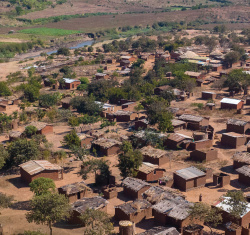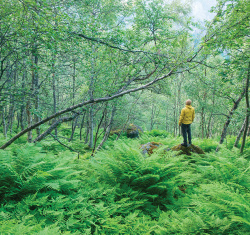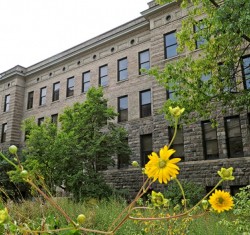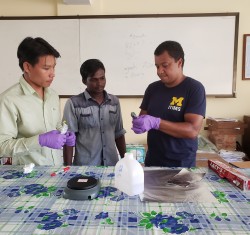
 back to all faculty
back to all faculty
Pamela Jagger
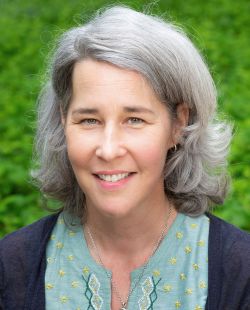
About
Pam Jagger is a global leader in interdisciplinary population and environment research. She is an applied political economist whose research focuses on the dynamics of poverty and environment interactions in low-income countries. She leads the interdisciplinary Forest Use, Energy, and Livelihoods (FUEL) Lab, and is the Director of the National Science Foundation funded Energy Poverty PIRE in Southern Africa (EPPSA), a 5-year collaborative program to support research and training on the topic of energy access in Southern Africa. FUEL Lab research is currently organized around three themes: environment and livelihoods, environmental governance, and energy poverty. The first theme focuses on quantifying the role of forests and the other environmental resources in household consumption and income generation, and understanding how contributions change in response to land use land cover change, implementation of conservation and development projects, and population dynamics. The second theme examines the livelihood impacts of changes in environmental governance and institutions on access to environmental goods and services. The third theme examines household energy access including understanding the effectiveness of interventions designed to mitigate energy poverty and improve access to electricity and cleaner cooking and novel research questions related to the effects of land cover and land use change on energy access and human health. Dr. Jagger has worked as a policy research scholar with the World Bank, Resources for the Future, the International Food Policy Research Institute, and the Center for International Forestry Research.
Publications
Select recent publications
Jagger, P., A. Gallerani, I. Hoffman, C. Jumbe, R. McCord, J. Pedit, S. Phiri, R. Krysiak, and K. Maleta. 2024. Household Air Pollution Exposure and Risk of Tuberculosis among Adult Women in Lilongwe, Malawi. BMJ Public Health 2024;2:e000176.
McCord, R., S. Parsons, A.S. Bittner, C. Jumbe, J. Pedit, N. Serenge, A. Grieshop and P. Jagger. 2024. Risk of Cognitive Impairment from Biomass Cooking in Africa. Indoor Air 2024: 7363613.
Thompson, J., R.B. Ramazani, C.S. Sinai, K.K. Bindu, and P. Jagger. Do Decentralized Solar Mini Grids Improve Energy Access for Small Enterprises in Goma, Democratic Republish of Congo? Energy for Sustainable Development 81:101464.
Zhang, Q., S. Tao, P. Jagger, R. Bilsborrow, Z. Shang, Q. Huang, L. Band, Q. Zhang and C. Song. 2024. Remittance from migrants reinforces forest recovery for China’s reforestation policy. PLoS One 19(6): e0296751.
Jagger, P., J. Zavaleta Cheek, D.C. Miller, C. Ryan, P. Shyamsundar, and E.O. Sills. 2022. The Role of Forests and Trees in Poverty Dynamics. Forest Policy and Economics 140:102750.
2022 Co-Investigator, National Institutes of Health (NIH), National Institute on Aging, Developing Infrastructure for the Longitudinal Study of Health and Ageing in Kenya (LOSHAK) ($338,599 USD)
2019 Co-Investigator, National Institutes of Health (NIH), Clean Cooking Implementation Science Network, Fogarty International Center (FIC), Feasibility of Scaling ‘Clean Stacking’ Options in Southern Africa ($74,993 USD)
2018 Co-Investigator, National Geographic Society (NGS), Sustainable Cities Program, Searching for Clean Air and Sustainable Energy Transitions in Yangon, Myanmar ($83,520 USD)
2018 PI and PIRE Director, National Science Foundation (NSF), Partnerships in International Research and Education (PIRE), PIRE: Confronting Energy Poverty: Building an Interdisciplinary Evidence Base, Network, and Capacity for Transformative Change ($4,790,000 USD)
2024 Wilson Center Fellowship, The Wilson Center, Washington, DC
Ph.D. Public Policy, Indiana University
M.Sc. Forest Economics, University of Alberta
B.A. Economics, University of Alberta
- University of Michigan
- Professor (courtesy), Gerald R. Ford School of Public Policy
- Professor, Program in the Environment, College of Literature, Science and the Arts
- Faculty Associate, Survey Research Center
- Faculty Associate, Population Dynamics and Health Program
- Faculty Associate, Population Studies Center
- Faculty Affiliate, Institute for Energy Solutions
- University of North Carolina
- Research Professor, Geography, University of North Carolina at Chapel Hill
- Faculty Fellow, Carolina Population Center
- RWI – Leibniz Institute for Economic Research, Essen, Germany
- Research Fellow
- Environment for Development Initiative, University of Gothenburg, Sweden
- Senior Research Fellow
- Research Committee


